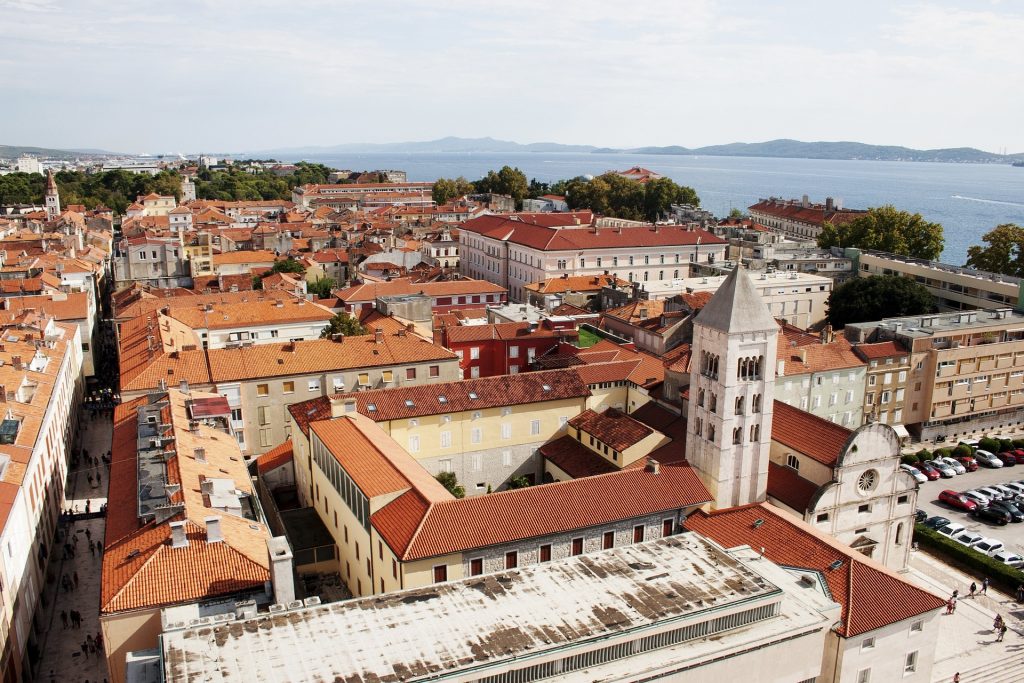May the 13th, 2024 – You might be thinking of the likes of Zagreb, Rovinj or Dubrovnik when it comes to the most expensive Croatian city to purchase property in, but you’d be wrong…
As Poslovni Dnevnik writes, Lana Mihaljinec Knežević, a member of the Presidency of Real Estate Business at the Croatian Chamber of Commerce, and Branko Papeš, real estate expert and owner of the agency, spoke about this burning topic.
Mihaljinec Knežević said that there is an extremely large percentage of foreign property buyers along the Croatian coast.
“Croatia is an attractive tourist destination and foreigners buy real estate here as an investment. One of the reasons is that they can generate large incomes through low-taxed tourist rentals,” she said, adding that this creates significant problems for coastal towns and cities that are also university cities. As she explained, unaffordability is a growing problem, especially for the local population.
“There are more and more young people who simply cannot afford real estate,” she said, pointing out that the demand for apartments is high, and the offer is very much insufficient. There is nothing to offer a anyone with an average income.
the croatian property market pre and post-covid-19
“The problem is that people and the media don’t really segment between used apartments and new buildings. High prices in newly constructed buildings have pulled down prices in used apartments. Now we have a situation where sellers of used apartments have high expectations. That said, price growth has slowed down,” said Mihaljinec Knežević.
Papeš pointed out that there was a different in the market before and after COVID-19 struck Europe.
“Before COVID-19, the share of foreigners in the purchase of real estate in Croatia stood at around 20 percent, and now it is 40 percent,” he said, noting that Croatia is among the 30 percent of the most expensive locations in the entire EU, but, as he explained, affordability is not significantly different from the rest of Europe.
“The most expensive Croatian city to buy real estate in is currently Zadar. You have to set aside 17.9 years of all of your typical income in order to be able to buy an average property there. Down in Dubrovnik that sum of years is 16.9. Even in Munich in Germany, you have to work for 15 years to afford a 100 square metre apartment, and in Rome – you need to work for 15.7 years. The most expensive cities for the average worker to buy somewhere is Milan with 19.6 and Belgrade with 19.4 years,” he pointed out.
Mihaljinec Knežević said that the Croatian real estate market is quite the phenomenon and it often doesn’t behave in accordance with expected macroeconomic factors.
“We don’t really see a drastic drop in prices like we did back in 2008 and 2009. Back then, we had a large fund of unsold apartments, and now we don’t have enough real estate at all,” she said, adding that the pool of buyers who are ready to pay exorbitant prices for low-quality properties has been used up, and we’re now witnessing a general slowdown in price growth. That’s mostly the case in used residential buildings. In addition to all of the above, the high rate of ownership is a legacy of buying out the right of occupancy.
Papeš believes that the state should protect people against these constantly and unrealistically rising real estate prices. While Mihaljinec Knežević emphasised that Croatia doesn’t actually even have a housing policy.
When asked why foreigners are the main purchasers of real estate in this country, regardless of the Croatian city we’re talking about, Papeš answered that the level of safety offered by Croatia comes first. That’s closely followed by quality of life and proximity to very many other European destinations.
“We’re a “best buy” destination for foreigners who come and purchase property here,” she explained, while Papeš added that an analysis into precisely this has been carried out.
“We took into account the average apartment in the Croatian city of Rijeka which spans 50 square metres. Back in 2004, something like that could be bought for 65,000 euros. Today, that same apartment is worth about 170,000 euros. This is an increase in value of 165 percent, and if it was rented out, another 112,000 euros could be earned,” he said.









